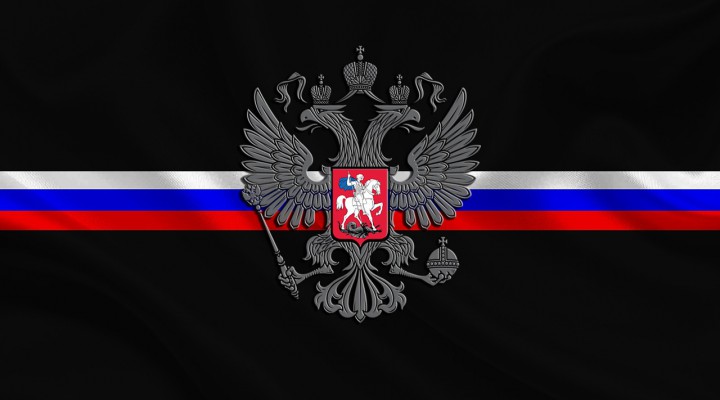Russia’s New National Security Strategy

On 2 July 2021, Russian President Vladimir Putin confirmed the country’s new National Security Strategy.
It replaces the previous document dated 31 December 2015 and has already entered into force.
It is noticeable from the very first pages that the wording is less abstract, and many provisions have been elaborated on.
Thus, among the threats is repeated mention of US actions and NATO activities, as well as the activities of terrorist and extremist groups.
In the general provisions, the basic concepts remain unchanged, but there is now information on strengthening sovereign statehood and resisting attempts to exert external pressure. Phrases like “strong power” and “fundamental values” are used, and Russia is defined as a social state governed by the rule of law.
The New Strategy was released following amendments to the Constitution, and there is a reference to the main law early in the text that indicates the relationship between these two documents.
The second part notes the emergence of new centres of power that are leading to changes in the structure of the world order. However, there is no mention of a move to polycentricity (as there was in the previous document). Instead, it talks about multilateral cooperation without dividing lines under the central coordinating role of the UN. Nevertheless, it states directly that countries in the West want to preserve their hegemony, increase disparities in development, use double standards, and exert political and economic pressure on Russia and its partners. Attempts are being made under a false pretext to hinder Russia’s development of the Arctic and of transport routes.
It is revealing that the document mentions a crisis in the Western liberal model, giving relevancy to the issue of moral leadership and the creation of an attractive ideological basis for a future world order. The timeliness and importance of Russia developing its own ideology can be read between the lines.
Along with the prospect of new challenges and threats, the document also mentions additional opportunities for Russia if the country is ready to realise its competitive advantages, including the attractiveness of its system of values.
The list of national interests and strategic priorities includes not only sustainable economic development and maintaining stability both domestically and abroad, but also saving and developing human potential, protecting Russia’s sovereignty and territorial integrity, strengthening traditional spiritual and moral values, and preserving historical heritage.
There is repeated mention of the importance of increasing the country’s population, supporting the family and motherhood, increasing the birth rate, and improving the motivation for having many children.
The section on defence focuses on two threats (although it doesn’t talk about them directly) – the US and NATO – and it notes the escalation in the Middle East, North Africa, and Afghanistan. It also notes attempts from outside to influence the situation within the country, taking advantage of various socio-economic problems and difficulties.
Three and a half pages are devoted to information security, where, among other things, it talks about strengthening the sovereignty of the Russian Federation in the information space, and the use of foreign communication technologies and equipment increasing the vulnerability of Russian information resources and critical infrastructure to influence from abroad. The development of forces and means of information warfare, as well as the interaction between public authorities, organisations and civil society, are set out as challenges for strengthening information sovereignty.
An even longer section made up of four pages talks about defending traditional spiritual and moral values, culture, and historical memory. The promotion of selfishness, consumption and pleasure, the imposition of alien ideals and values, and the “Westernisation” of culture are given as negative trends. It openly states that traditional Russian values are being attacked by the US and its allies, as well as by transnational corporations, non-governmental organisations, and religious and extremist groups. In fact, the strategy unambiguously notes the harmfulness of globalisation in all its forms, especially cultural. It also talks about the need to strengthen the institution of the family and preserve traditional family values, cultural sovereignty and patriotic education, while at the same time building up the necessary protection against the external expansion of ideologies and values as well as destructive information and psychological pressure.
It is telling that the previous strategy from 2015 stated that “traditional Russian spiritual and moral values are being revived”, although their erosion at that time was classified as a threat.
Several pages are also given over to economic security, as well as ways to solve a number of challenges in this area.
The UN and the Security Council, BRICS and the SCO, the deepening cooperation with CIS member states, South Ossetia and Abkhazia, the EAEU, the Collective Security Treaty Organisation, the Union State, special relationships with China and India, and the continued integration as part of the Greater Eurasian Partnership are all identified within the framework of international cooperation.
All in all, the new strategy is essentially more conservative, reflecting current trends and geopolitical changes. For proponents of traditional and conservative values, the document is more acceptable than the previous one. For liberals and globalists, on the other hand, it contains clearly unacceptable provisions.
Control over the strategy’s implementation will be carried out within the framework of state monitoring, and it will be reported on annually by the Security Council.
https://orientalreview.org/2021/07/14/russias-new-national-security-strategy/
 TheAltWorld
TheAltWorld 
0 thoughts on “Russia’s New National Security Strategy”